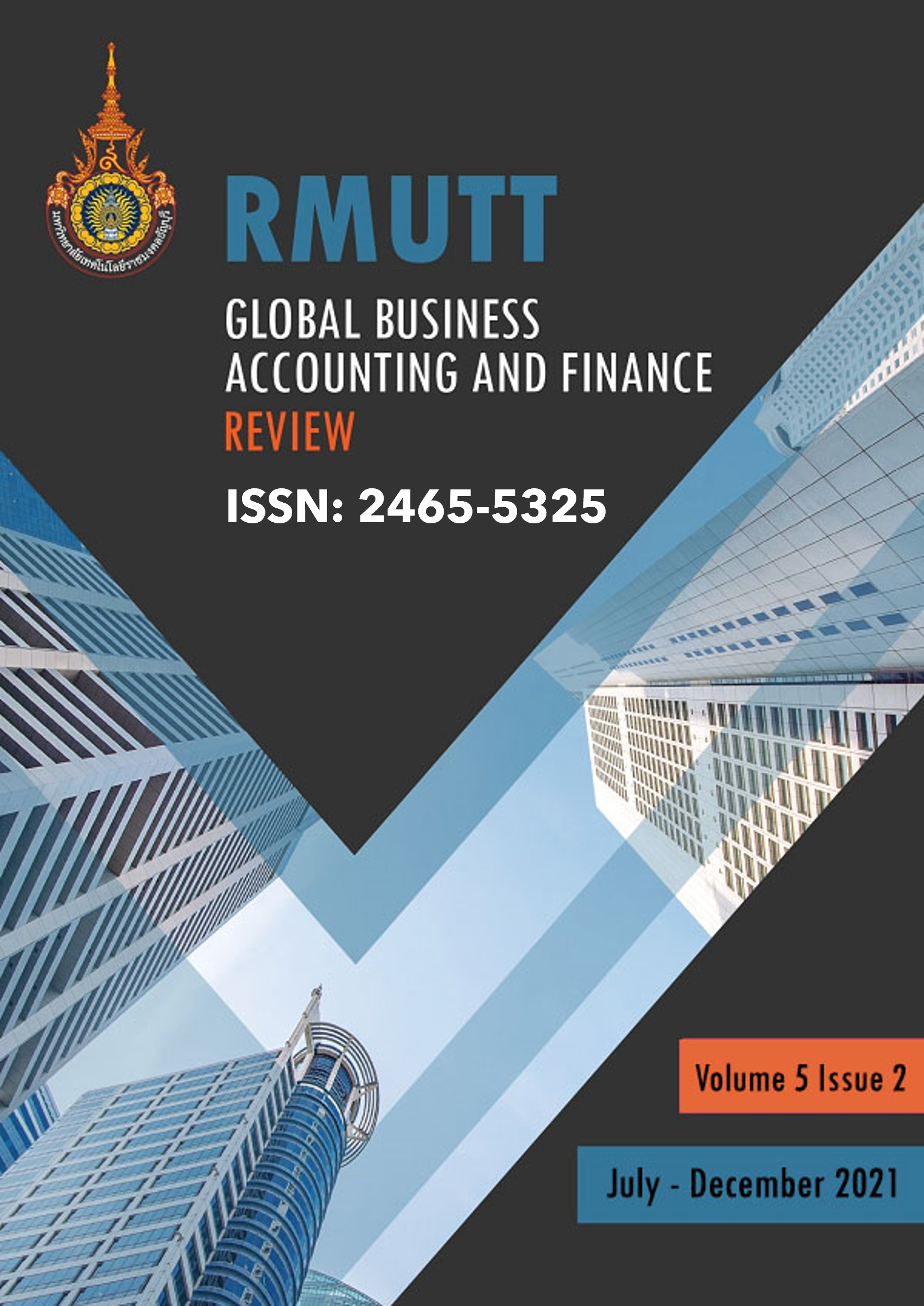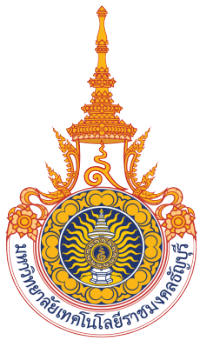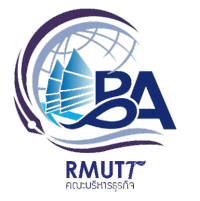THE IMPACTS OF THE COVID-19 PANDEMIC ON THE TOURISM SUPPLY CHAIN SYSTEM IN KRABI PROVINCE
Keywords:
Strengths, Weaknesses, Opportunities, Obstacles, Tourism StrategiesAbstract
The objectives were to study the strengths, weaknesses, opportunities, and obstacles of the tourism supply chain and to study tourism strategies in the tourism supply chain system during the Covid-19 crisis between January and March 2020. Samples were of 400 tourists and 30 Tourism Supply Chain specialists. Data collection was made through a questionnaire survey and in-depth interviews. The data analysis employed descriptive and inferential statistics as well as content analysis.
The results showed that the strengths of tourism supply chains in Thailand consist of 1) price compared to received services, 2) quality of serviced personnel and 3) quality of products or services, respectively. In terms of weakness, the issue includes communication styles in foreign languages. In terms of opportunities, the issues include 1) tourist destination reputation and beauty, 2) diversity of tourism activities, and 3) online media growth. Lastly, the obstacles include 1) attractiveness of tourist destination in other provinces, 2) lack of mutual support during supply chains, and 3) safety standards for tourists.
For the appropriate strategy in the tourism supply chain, the findings were as follows: 1) marketing communication should focus on local identity, 2) tourism personnel should be upskilled and reskilled, 3) technology to communicate via social media should be well considered, and 4) there should be a promotion on tourists’ health safety standards. In addition, the future research is also discussed.
References
Cochran, W.G. (1977). Sampling Techniques (3rd Edition). John Wiley & Sons, New York.
González-Torres, T., Rodríguez-Sánchez, J. L., & Pelechano-Barahona, E. (2021). Managing relationships in the Tourism Supply Chain to overcome epidemic outbreaks: The case of COVID-19 and the hospitality industry in Spain. International journal of hospitality management, 92, 102733.
Huang, G. Q., Song, H., & Zhang, X. (2010) A comparative analysis of quantity and price competitions in tourism supply chain networks for package holidays. The Service Industries Journal, 30(10), 1593-1606. doi: 10.1080/02642060903580631
Intojunyong, S. (2020). The Study of Supply Chain and Data Model of Tourism Industry in Thailand. Suthiparithat Journal, 28(85), 352-369.
Jermsittiparsert, K., Joemsittiprasert, W., & Phonwattana, S. (2019). Mediating role of sustainability capability in determining sustainable supply chain management in tourism industry of Thailand. International Journal of Supply Chain Management, 8(3), 47-58.
McKibbin, W., & Fernando, R. (2020). The economic impact of COVID-19. Economics in the Time of COVID-19, 45-51.
Ministry of Tourism and Sports (2019, March 3). Foreign Tourists Statistics. Retrieved from www.mots.go.th: https://www.mots.go.th/News-link.php?nid=12413
Molefe, L. P., Tauoatsoala, P., Sifolo, P. P. S., Manavhela, P., & Henama, U. S. (2018). The effects of tourism supply chain management practices on tourism operations in Pretoria, South Africa. African Journal of Hospitality, Tourism and Leisure, 7(2), 1-12.
Palang, D., & Tippayawong, K. Y. (2019). Performance evaluation of tourism supply chain management: the case of Thailand. Business Process Management Journal. 25(6), 1193-1207.
Piboonrungroj, P. (2009b). Methodological Implications of the Research Design in Tourism Supply Chain Collaboration3. EDAMBA Summer Academy (p. 3). France: Cardiff University.
Piboonrungroj, P., & Disney, S. M. (2009a). Tourism Supply Chains: A Conceptual Framework. Ph.D. Networking Conference (p. 6). Exploring Tourism III: Issue in PhD research.
Srithongphim, W. (2017). Towards an approach of supply chain strategy of tourism in Thailand based on analytic hierarchy. VRU Research and Development Journal Humanities and Social Science, 1-10.
Szpilko, D. (2017). Tourism Supply Chain–overview of selected literature. Procedia Engineering, 182, 687-693.
Tantrakarnapa, K., Bhopdhornangkul, B., & Nakhaapakorn, K. (2020). Influencing factors of COVID-19 spreading: a case study of Thailand. J. Public Health, 1-7. https://doi.org/10.1007/s10389-020-01329-5
Tapper, R. (2004). Tourism Supply Chain. United Kingdom: Environment Business & Development Group.
Wong, K. M., Velasamy, P., & Tengku Arshad, T. N. (2014). Medical Tourism Destination SWOT Analysis: A Case Study of Malaysia, Thailand, Singapore and India. SHS Web of Conferences, 12, 01037. https://doi.org/10.1051/shsconf/20141201037
Zhang, X., Song, H., & Huang, G. Q. (2009). Tourism supply chain management: A new research agenda. Tourism Management, 30(3), 345-358.









